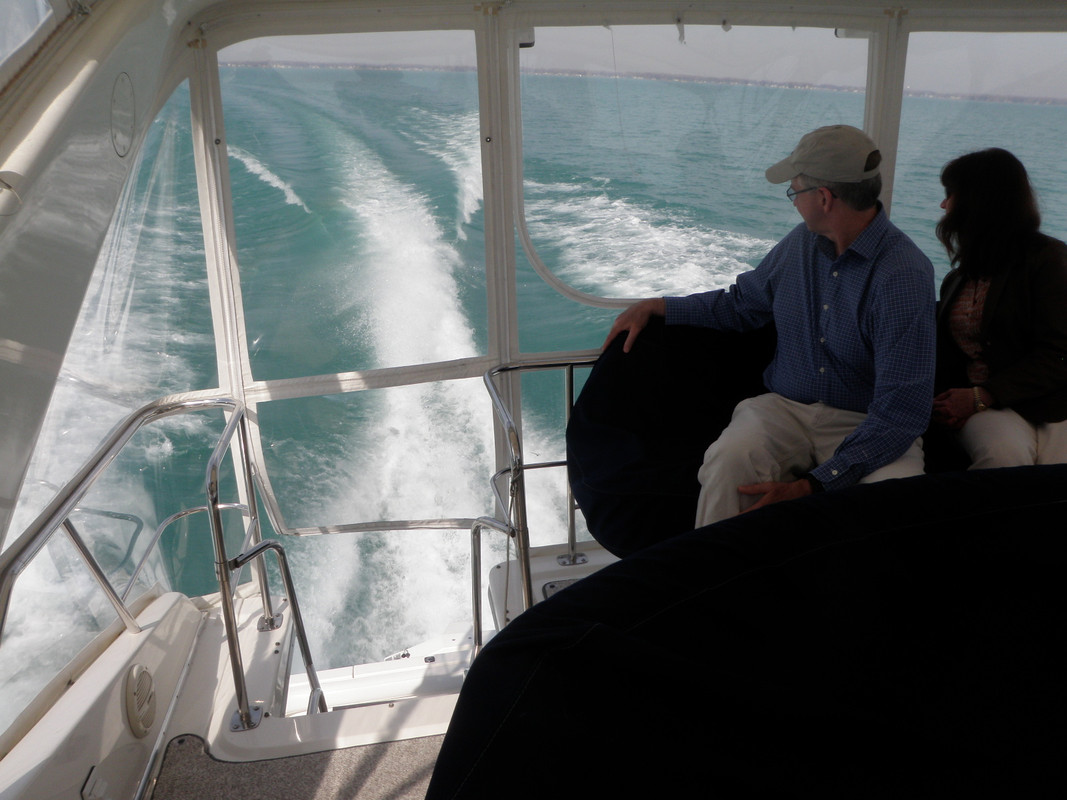I may be the only one on TF that doesn't track fuel mileage. When we bought our boat I knew it wasn't going to be a fuel skimping boat but I also knew that fuel is probably one of the smallest costs of owning a boat.
Our boat has twin Cats, turbo'd at 580hp each. My hull speed is just about 9kts. AT idle I'm running about 7kts and if I want to get below that in a no wake zone I run with one engine in neutral.
My cruising speed is between 17-22kts, depending on how much of a hurry I am in. The boat does well at both speeds, rides nice, handles, well, etc. WOT on my boat is 30.3kts and we verified this during the sea trial when we bought her 9 years ago.
Since we boat on a river that usually has a 2.5kt current, being able to run at 7kts was not something I wanted to do. When we hit the Snake River in the spring the current can easily be 4.5-7kts. Not something I'd want to do with a 7kt boat.
About 90% of our cruising is done at just above idle unless we're heading upstream then I'll kick it up to about 1000 rpm's and that puts us about 10kts.
I guess my point is that the speed is there if I want/need to use it, but the higher fuel economy is there if we're just cruising to enjoy a day on the water.
Our boat has twin Cats, turbo'd at 580hp each. My hull speed is just about 9kts. AT idle I'm running about 7kts and if I want to get below that in a no wake zone I run with one engine in neutral.
My cruising speed is between 17-22kts, depending on how much of a hurry I am in. The boat does well at both speeds, rides nice, handles, well, etc. WOT on my boat is 30.3kts and we verified this during the sea trial when we bought her 9 years ago.
Since we boat on a river that usually has a 2.5kt current, being able to run at 7kts was not something I wanted to do. When we hit the Snake River in the spring the current can easily be 4.5-7kts. Not something I'd want to do with a 7kt boat.
About 90% of our cruising is done at just above idle unless we're heading upstream then I'll kick it up to about 1000 rpm's and that puts us about 10kts.
I guess my point is that the speed is there if I want/need to use it, but the higher fuel economy is there if we're just cruising to enjoy a day on the water.


